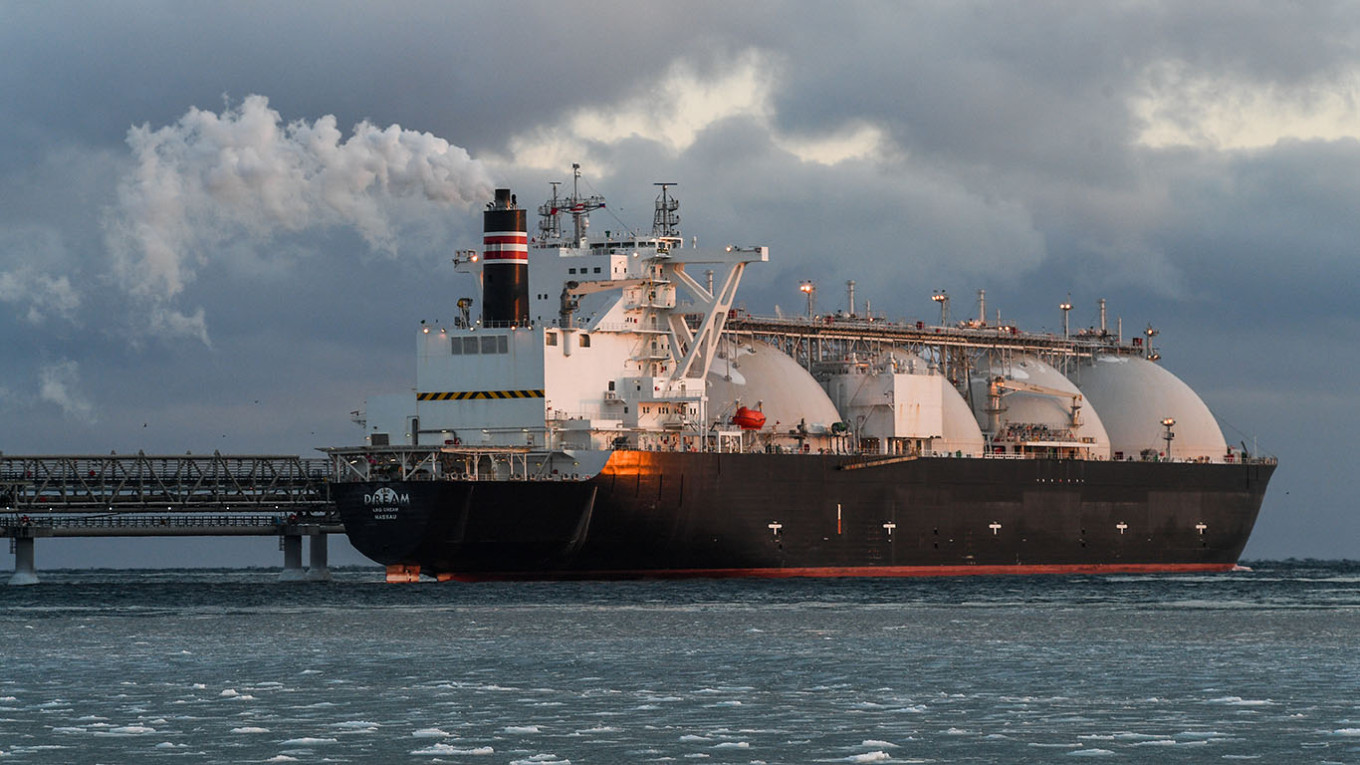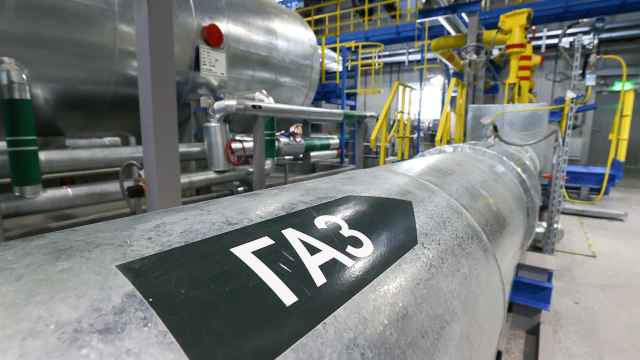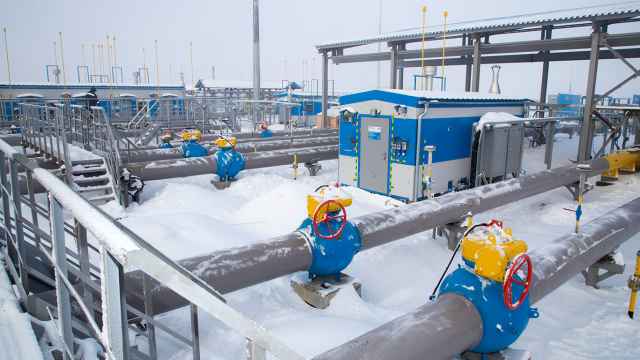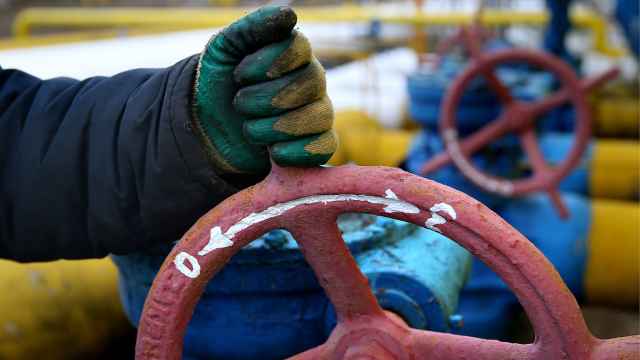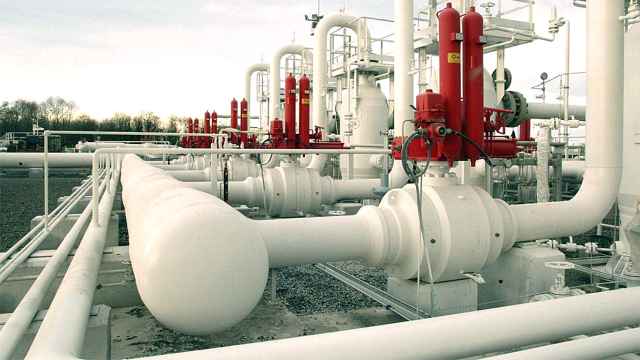The European Union proposed Friday to bring forward by a year a ban on Russian gas imports as part of new sanctions to sap Moscow's war chest and please U.S. President Donald Trump.
The 19th package of EU sanctions targeting Moscow since its 2022 invasion of Ukraine also seeks to hit firms as well as banks and traders in China, India and other countries accused of helping Russia circumvent sanctions.
Under the proposal, which needs approval by the bloc's 27 member states, the European Commission aims to phase out liquefied natural gas (LNG) purchases from Russia by January 2027.
Ukrainian President Volodymyr Zelensky hailed the "robust" package as "an important step that will intensify pressure on Russia's war machine and have a tangible impact."
"Russia's war economy is sustained by revenues from fossil fuels. We want to cut these revenues," European Commission chief Ursula von der Leyen said.
"It is time to turn off the tap."
The new sanctions package comes as the United States pressures the EU to end fossil fuel imports from Russia — and as the bloc seeks in turn to coax Trump to take a tougher stance against Moscow.
The U.S. leader has so far held back from upping pressure on Russian President Vladimir Putin, but last week he said he was ready to do so if allies stopped buying Russian oil and hit China with tariffs.
Russian oil imports slashed
The EU has already banned most Russian oil under previous rounds of sanctions, slashing the share it imports from 29% in early 2021 to 2% by mid-2025.
Only Hungary and Slovakia, friendly to Moscow and Trump, still buy Russian oil.
EU foreign policy chief Kaja Kallas said Brussels was bringing forward by 12 months a previous pledge to end all imports of Russian LNG from the end of 2027 to the end of 2026.
"Moscow thinks it can keep its war going. We are making sure it pays the price for it," she wrote on X.
In a post on X, Zelensky thanked the EU "for its leadership and unity."
"We count on swift adoption of the 19th package, and we expect other partners to mirror and expand these steps," he said.
Despite a push to end decades of European dependency, Russia still supplied 19% of the EU's gas in 2024, compared with 45% before the war.
That is in part due to an increase in purchases of LNG transported by sea, which have partially offset a sharp fall in pipeline imports.
Last year, 32 billion cubic meters of gas entered Europe via the TurkStream pipeline, and 20 billion cubic meters through liquefied natural gas (LNG) shipments.
Crypto and China
The EU has already imposed 18 rounds of sanctions over Moscow's invasion of Ukraine despite opposition from some member states, notably Hungary and Slovakia.
Von der Leyen said that with the latest batch, the EU was "going after those who fuel Russia's war by purchasing oil in breach of the sanctions."
"We target refineries, oil traders, petrochemical companies in third countries, including China," she said.
Brussels also intends to target crypto platforms and the credit card system MIR, set up by Russia to avoid reliance on U.S.-based networks, she and Kallas said.
The package also seeks to blacklist 118 more vessels in the "shadow fleet" of ageing tankers used by Russia to circumvent oil export curbs, and 45 firms accused of supporting the Russian military-industrial complex.
Entities from Russia, China and India would face export bans and tighter controls, Kallas said.
While they are likely to be seen as an attempt to meet Trump midway, the measures fall far short of his request that allies place up to 100% tariffs on Beijing and New Delhi.
That was expected as Brussels, which is generally averse to tariffs, is currently negotiating a trade pact with India and has no appetite for a broader trade war with China.
Some diplomats have critically noted that the U.S. demands for European action coincide with U.S. commercial interests, while allowing room for Trump to again stall on taking a tough stance against Russia himself.
The United States, the world's top oil producer, is the largest supplier of LNG to Europe, accounting for almost 45% of total imports.
Most LNG is imported through terminals in France, Spain, Italy, the Netherlands and Belgium, though it is hard to know how much is also consumed there or simply passes through towards other nations.
A Message from The Moscow Times:
Dear readers,
We are facing unprecedented challenges. Russia's Prosecutor General's Office has designated The Moscow Times as an "undesirable" organization, criminalizing our work and putting our staff at risk of prosecution. This follows our earlier unjust labeling as a "foreign agent."
These actions are direct attempts to silence independent journalism in Russia. The authorities claim our work "discredits the decisions of the Russian leadership." We see things differently: we strive to provide accurate, unbiased reporting on Russia.
We, the journalists of The Moscow Times, refuse to be silenced. But to continue our work, we need your help.
Your support, no matter how small, makes a world of difference. If you can, please support us monthly starting from just $2. It's quick to set up, and every contribution makes a significant impact.
By supporting The Moscow Times, you're defending open, independent journalism in the face of repression. Thank you for standing with us.
Remind me later.


